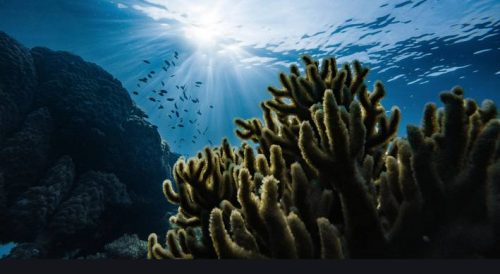Beijing, People Republic of China, January 26, 2021 / TRAVELINDEX / Chinese President Xi Jinping called for both greater global efforts in the fight against an unprecedented public health crisis and a renewed commitment to multilateral cooperation, in a special address on Monday to business, government and civil society leaders taking part in the World Economic Forum’s virtual event, The Davos Agenda.
“The pandemic is far from over and the recent resurgence in COVID cases reminds us that we must carry on the fight,” Xi said. “There is no doubt that humanity will prevail over the virus and emerge even stronger from this disaster.”
“We should stay committed to keeping up with the times instead of rejecting change. Now is the time for major development and major transformation.”
Xi outlined several objectives required for a better future. They include the need to work together to achieve strong, sustainable, balanced and inclusive growth, to close the gap between developing and developed countries as a prerequisite for global prosperity, and to strengthen global cooperation in addressing the big common challenges, namely COVID-19 and climate change.
On cooperation
“We hope these efforts will bring more cooperation opportunities to other countries and give further impetus to global economic recovery and growth,” he said.
“We have been shown time and again that to beggar thy neighbor, to go it alone, and to
slip into arrogant isolation will always fail. Let us all join hands and let multilateralism light our way toward a community with a shared future for mankind.”
“Zero sum game or winner takes all is not the philosophy of the Chinese people.”
“We should stay committed to international law and international rules, instead of seeking one’s own supremacy”
On climate
“We need to deliver on the Paris Agreement on climate change and promote green development,” he said. “We need to give continued priority to development, implement the Sustainable Development Goals, and make sure that all countries, especially developing ones, share in the fruits of global development.”
Xi reiterated China’s commitment to implement the 2030 Agenda for Sustainable Development and promoting a green, low-carbon way of life and production, and achieving carbon neutrality before 2060.
“The earth is our one and only home. To scale up efforts to address climate change and promote sustainable development, bears on the future of humanity.”
On the economy
“Despite the trillions of dollars in relief packages worldwide, global recovery is rather shaky and the outlook remains uncertain. We need to focus on current priorities, and balance COVID response and economic development. Macroeconomic policy support should be stepped up to bring the world economy out of the woods as early as possible.”
On COVID-19
Containing the coronavirus is another pressing task for the international community, he said, stressing that closer solidarity and cooperation, more information sharing and a stronger response are what is needed to defeat COVID-19. He said China is committed to sharing its experience with other countries and assisting those less prepared for the pandemic and work for greater accessibility to COVID vaccines in developing countries.
On globalization
He also said China will continue to promote economic globalization and advance technology and innovation, and is committed to following through on its policy of opening up and continuing to promote trade and investment liberalization.
On technology
“Science, technology and innovation is a key engine for human progress… China will create an open, fair, equitable and non-discriminatory scientific environment that is beneficial to all.”
Klaus Schwab, the World Economic Forum’s Founder and Executive Chairman, thanked China for taking an active part in global efforts to combat COVID-19 and to implement the 2030 Agenda for sustainable development.
“2021 will be the critical year to re-establish trust in our ability to shape our common future in collective and constructive ways,” Schwab said. “We must win the fight against the virus, we must reinvigorate global economic growth and make it more robust, resilient, inclusive and sustainable, and at the same time, we must accelerate the transition to a net zero economy.”
He added: “We must come together to ensure that we capture the moment and move into the age of collaboration to build a better world.”
About The Davos Agenda
The Davos Agenda is a pioneering mobilization of global leaders aimed at rebuilding trust to shape the principles, policies and partnerships needed in 2021. It features a full week of global programming dedicated to helping leaders choose innovative and bold solutions to stem the pandemic and drive a robust recovery over the next year. Heads of state, chief executives, civil society leaders and the global media will actively participate in almost 100 sessions spanning five themes.











